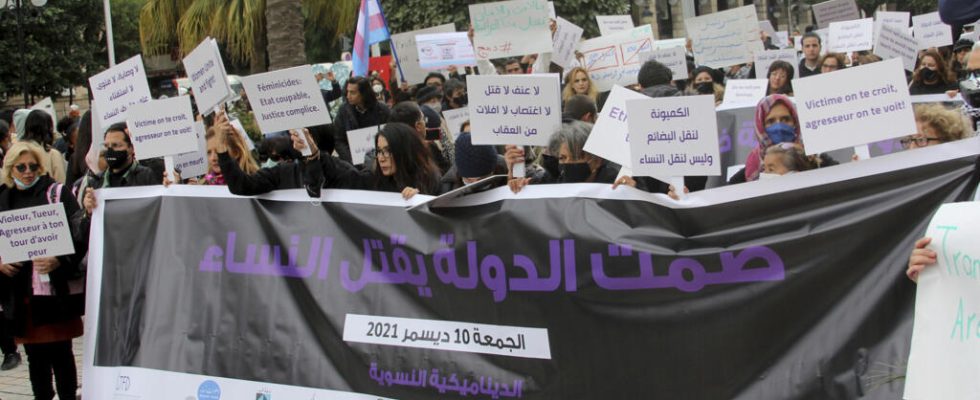In Tunisia, digital technology is a double-edged tool for the cause of women. After the 2011 revolution, social networks helped free speech with the EnaZeda movement, a sort of Tunisian #Metoo, or the call to mobilize for women’s rights, which often comes through digital platforms. But the web has also become the place for the reproduction of gender-based violence, particularly for activists or women entering politics. To the point where a coalition of associations wants to raise awareness against these acts.
3 mins
With our correspondent in Tunis, Lilia Blaise
Activist since the 2011 revolution, feminist activist, Asrar Ben Jouira has been attacked by internet trolls numerous times. This is because of his political positions, to the point of becoming the constant target of cyberharassment.
This violence forced her to change the way she used social networks: “ For example, when I go somewhere, I don’t put the photos on social networks. Whereas before, I would post “stories” even if it was a party or an event. I stopped everything for fear of being attacked. I also avoid certain statuses and I reread myself ten times before publishing. It’s a bit like I’m censoring myself, Ultimately. »
Hayet Ahlemi, a former vice-president of the municipal council in Kasserine, in the center-west of the country, was the victim of attacks on social networks in 2021 after wanting to denounce a corruption case. “ It went very far after I filed a complaint in this case which questioned the management of public property within the municipality : a municipal councilor slapped me in front of everyone, and then, thee harassment started on the Internetshe says. My physical appearance was attacked, I was called a non-believer and a bad Muslim… »
The attacks were so bad that she had to change her son’s school. Since then, she has filed a complaint for violence on the basis of the law against violence against women, passed in 2017. Until today, three years later, she has had no follow-up.
Read alsoIn Tunisia, violence against women has increased in homes
A coalition of associations to raise awareness of gender-based cyberviolence
To best fight against cyberviolence against women, a coalition of 25 Tunisian associations came together in a coalition called the Front for Equality and Women’s Rights. This organization haslaunched a project to raise awareness of the specificity of this form of violence with the support of the Danish Institute for Human Rights. The idea is to strengthen digital security, psychological support for victims and to develop a practical guide dedicated to digital violence.
Najet Araari, sociologist specializing in gender issues and member of the Danish Institute for Human Rights, talks to us about the impact of this cyberviolence. For her, cyberviolence is “ like in real spaceviolence against women “.
As in real space, violence against women on the Web is gender-based violence. It’s the same in the virtual space, it affects all categories of women, but why are we talking about activists or political women, etc.? This is because they are socially recognized women. So when they are affected by this violence, the violence in virtual space multiplies. And this is the effect and the impact of this violence, which has enormous effects on the lives of these women. If they are psychologically supported, if they know their rights, there is resilience. But if they don’t know, they start by withdrawing. The digital tool becomes a tool for excluding women, for isolating women.
For Najet Araari, sociologist specializing in gender issues, “the digital tool becomes a tool for excluding women”, unless they “are psychologically supported or if they know their rights”
